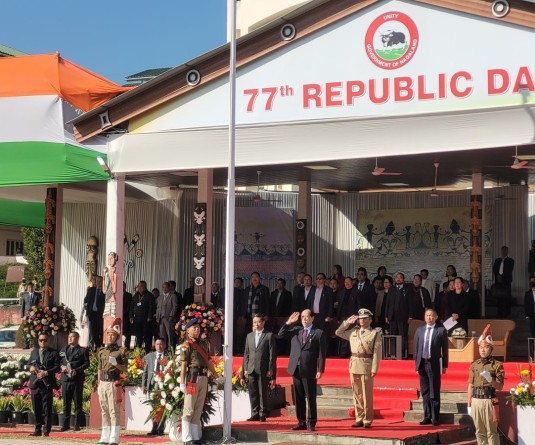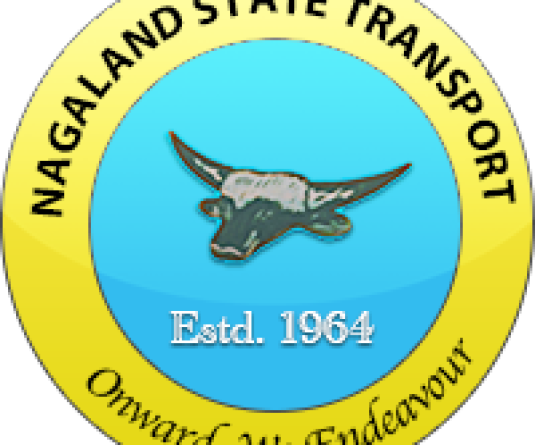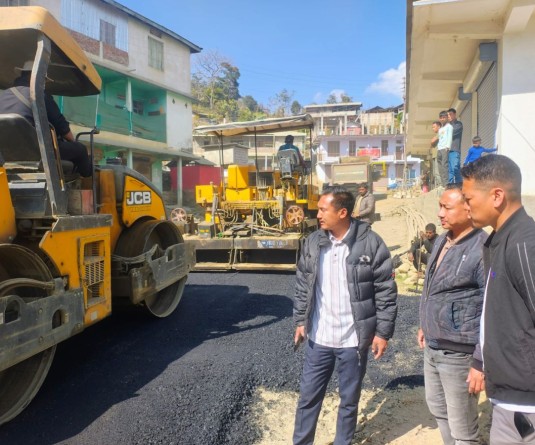Professor Sanjay (Xonzoi) Barbora, delivering the 19th Morung Lecture on, "How Far Did Your Ancestors Go? Naga Worlds And Assam," jointly organised by Fazl Ali College, Mokokchung and The Morung Express at the latter’s campus on August 19. (Morung Photo)
Fazl Ali College, The Morung Express collaborate for Morung Lecture XIX
Morung Express News
Mokokchung | August 19
"Jorhat, I would like to think, is also a Naga town, where at one time our political visions were broad enough to suspend nitpicking at definitions and concentrate on matters of the heart instead," opined Professor Sanjay (Xonzoi) Barbora, delivering the 19th Morung Lecture this afternoon at Fazl Ali College (FAC), Mokokchung.
"Our ancestors went very far from their comfort zones, and in doing so they discovered the joys of this beautiful land and the history of its peoples," he held, dwelling on the topic, "How Far Did Your Ancestors Go? Naga Worlds and Assam," in the lecture joinglty organised by the FAC and The Morung Express.
Ironically, Barbora noted that, for a part of the time when they made their journeys, "our destinies" were controlled by people who were from across the seas.
Yet, the years of colonisation did not prevent them from expanding their horizons, as they spread the stories of their homes and places, as well as made homes elsewhere too, he shared.

Dividing his talk into two sections, the sociologist from the Tata Institute of Social Sciences Guwahati, first delved on 'personal connections and social history' which constantly reminds him of the presence of Nagas in his life.
He spoke on how he was born 50 years ago, not very far from Mokokchung, at the Christian Mission Hospital on Jail Road in the small town of Jorhat.
The constant reminder of the presence of Nagas in his life, Barbora opined, cannot be disconnected from the larger history of the Assamese people, especially in upper Assam, which also serves as a reminder of how places have shaped politics in our region.
He remembered tasting the delicious mix of ground meat and chillies that his Naga friends brought from their homes and describing the beauty of their homes, as he tried to explain the monotonous life he lived in the tea plantations of Assam.
It was through the exchange of food and stories that he got interested in his own history, and by extension, the place of his birth, Barbora noted.
‘Nationalist worlds’
The second part of the talk was about the impact and implications of history in defining ‘our nationalist worlds’ in the 21st century.
While noting that Jorhat was the last capital of the Ahom kingdom that was established in 1794, Barbora went on to state that some radicals would refer to it as the last capital of independent Assam, as though the Ahom kingdom was homologous to the modern state of Assam.
He said that those who live in the borders between the two states acknowledge the period as one that was both fuelled by conflict, but also fostered ties of kinship and solidarity. The relationships of solidarity were built on trust and diplomacy.
He talked about the creation of the third (and last) category of high counsellors of the Ahom kingdom.
In the 16th century, King Suhungmung Dihingia Raja, inducted the Naga warrior Konseng as the first Borpatra Gohain, or the third counsellor of the kingdom.
Barbora also talked about one of FAC’s illustrious alumna, Prof Temsüla Ao and a biographical book about a personal story that exemplified what he was talking about.
The book, titled, ‘Once Upon a Life: Burnt Curry and Bloody Rags (A Memoir),’ spoke about her birth in the Mission Hospital in Jorhat.
Besides sharing about the well-known personalities who have their connections with upper Assam, he reminded the audience that the strength of our associations come from the extraordinary affection of ordinary people.
The sociologist, who had written extensively on autonomy, social movements, human rights, agrarian change, and conservation, further focused on the impact and implications of history in defining our nationalist worlds in the 21st century.
Calling it, 'nationalism, nostalgia, and history,' he shared about how their (he and his wife) lives in Jorhat were circumscribed by visits to relatives and work during the peace negotiations between the United Liberation Front of Assam (ULFA) and the Government of India that was mediated by the People’s Consultative Group (PCG) had stuttered to a halt.
To make matters worse, border clashes between various groups of people in Assam and Nagaland had begun to increase, making them nervous about his wife’s long fieldwork trips.
When they were growing up in the 1980s and early 1990s, he talked about how the youth’s anger was mostly expressed against the government and seldom against other communities in their small cosmopolitan town.
Unlike them, the young men who were noisily shouting slogans against Nagas outside ETC in 2009-2010, were the products of a city that come undone in its resistance to regeneration, he noted.
With disappearing jobs and no promise of a future, young people had begun to turn on each other, added Barbora, who has also been closely associated with the human rights movement in Assam since 1995.
He closed his talk with a story about rest and friendship which involves Naga nationalist leaders from the Naga National Council (NNC), and local community leaders in Jorhat.
An interaction was held with the audience which included faculties and research scholars after the lecture.
Earlier during the lecture, FAC Principal Dr I Wati Imchen, delivered the welcome note, while Dr Aküm Longchari gave the concluding remark. Arien Jamir moderated the lecture.






